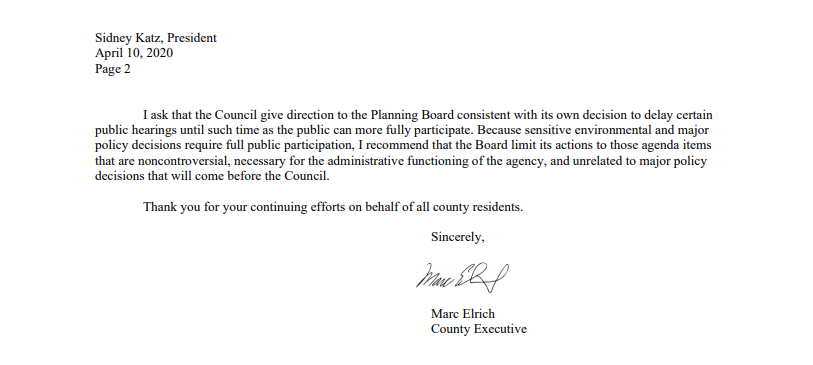By Adam Pagnucco.
One of Montgomery County’s most remarkable activist careers was started when a bus failed to show up on Route 29. Yes, it’s true. Most of us would simply grouse about it for a few minutes, call a cab and move on with our lives. But Dan Reed wrote about it on the Internet and wondered, “Why is Route 29 the only road across the Northwest Branch? A ‘Route 29 spur’ was proposed as part of the County’s Master Plan for roads that would have connected University Boulevard to 29 north of Lockwood Drive, bypassing Four Corners and the Burnt Mills Dam. Of course, this was forty years ago. The Right-Of-Way probably no longer exists – but, boy, would it have saved a lot of trouble this morning.” And so began one of MoCo’s greatest creative endeavors, Just Up the Pike.
Most people in MoCo who start out as transportation or land use activists begin local and stay local – very local. They’re concerned with something that impacts their neighborhood. That’s how Dan started, as someone who cared about his native East County and wanted to chronicle it, champion it and make sure it got the attention and respect it deserves. But he didn’t stop there. He wrote and wrote and grew and grew. In his exploration of East County, he learned both about the technical aspects of transportation and land use planning as well as the differing views held by the many people who lived there. He combined this with his education in architecture and planning at U-Maryland and the University of Pennsylvania to become one of MoCo’s preeminent story tellers, advocates and experts. He also branched out to take on subjects including local history, education, demography and politics. All of this has come to form a vision of MoCo combining the transit-oriented development and multi-modal priorities of the smart growth movement with the cultural sensibilities of millennials. Very few people have accomplished such a body of work in this county as has Dan Reed.
Now Dan is applying for the Planning Board. This is an immensely powerful position. The five board members recommend master plans for the county’s communities to the council. They also have input into the county’s budgetary and transportation priorities. Finally, they approve specific plans for individual development projects that collectively and continuously transform the county.
Planning Board members, who are selected by the County Council, have been a diverse lot over the years. They have included developers, attorneys, community activists, planning professionals and people of many other backgrounds. But there has never been a Planning Board applicant quite like Dan. It’s rare that one person would have a comparable background in leadership, vision, advocacy, writing and professional expertise all in one package – and to have those characteristics developed, not regionally or nationally, but right here in MoCo. And from the perspective of diversity, few would argue that our county would benefit from the engagement of more young people and more African Americans, both groups of which Dan is a member.
As a blogger for more than a decade, Dan has a point of view. But like all points of view, both its content and its expression are not universally appealing. David Lublin identified several things Dan has said over the years about residents in the western parts of the county that they would understandably find to be displeasing. Let’s consider Dan’s writing in context. First, he began writing Just Up the Pike at the age of 18 and he wrote many of his posts in his early 20s. Males of that age are not known for their judiciousness, discretion and restraint but Dan was better than most. Dear reader – what were YOU doing at that age? Your author admits nothing, and if my fraternity brothers post pictures here, they will be promptly deleted! Second, Dan and I (and David Lublin) have written well over a thousand blog posts each over the last decade. Surely there are a few things in such a vast body of work that we might look back on and think, “Hmmmm. Maybe I would write that differently today, or maybe not at all.” Does that invalidate the other 99% of content that might contain merit, and in Dan’s case, significant merit? Reasonable people could disagree on that, but I would argue that with Dan, the 99% overwhelms the 1%. And third, on those occasions when Dan has pointed out differences in education, income, school performance and other factors between the county’s regions, he was not wrong to do so. Might there have been more tactful ways to express such perspectives? Perhaps, but there is not a single one of us who has a perfect record of doing so. Dan may have some work to do on this, but so do I – and in our current benighted era of incivility, so do we all.
What all of this means is that Dan Reed is a human being – highly educated, ridiculously qualified and gifted, but human nonetheless. Those of us who have read Just Up the Pike over the last decade have watched Dan grow up – a process that for the rest of us has mercifully occurred away from the Internet. The person Dan is now is an ideal candidate for public service. Few people combine his insight, vision, passion, knowledge and readiness. MoCo is lucky to have him.
Dan Reed for Planning Board.



